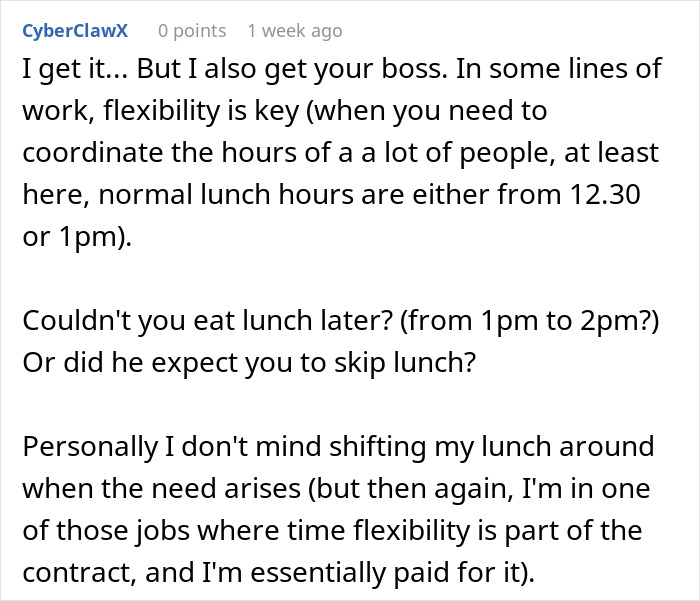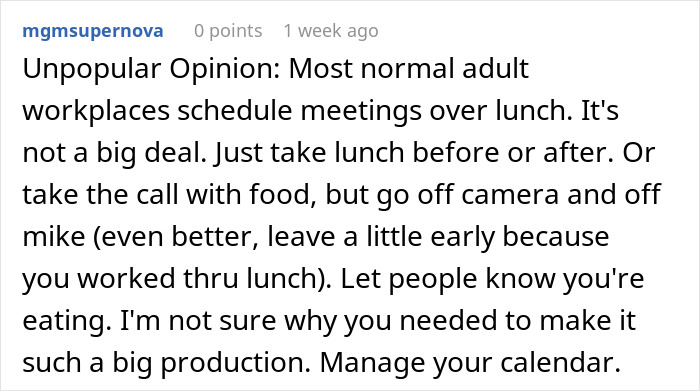It’s bad enough that many people must spend most of their days working just to eke out a living. But having a manager who expects you to be on the clock every single hour of each workday is an added insult to injury.
This boss had the exact problem when he showed an apparent lack of respect for his employee’s lunchtime. He was said to be a “power-tripping” supervisor who deliberately scheduled meetings in the middle of the said break.
However, his actions didn’t last for too long, thanks to the employee’s clever act of petty revenge.
There are bosses who choose to be abusive toward their employees

Image credits: Mike Kilcoyne / unsplash (not the actual photo)
An employee experienced this when his manager constantly scheduled meetings during the lunch break
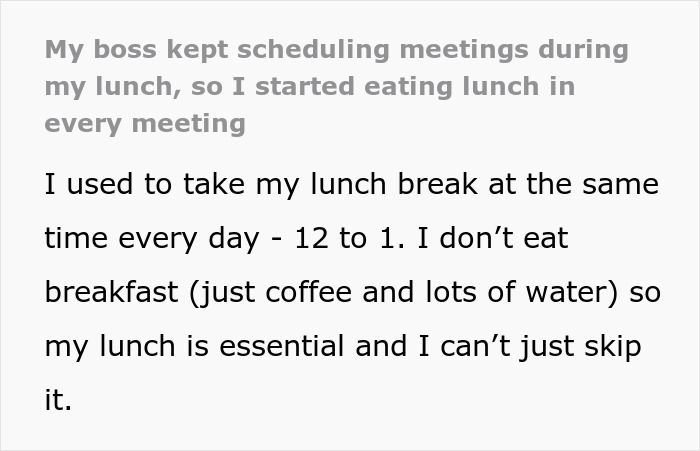
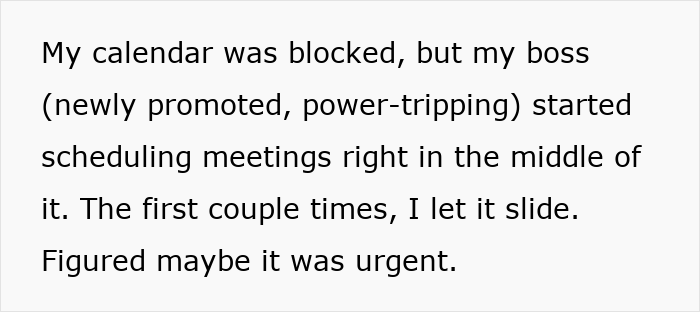

Image credits: Maxime / unsplash (not the actual photo)
Fed up with getting his work day messed up, the employee plotted his petty revenge
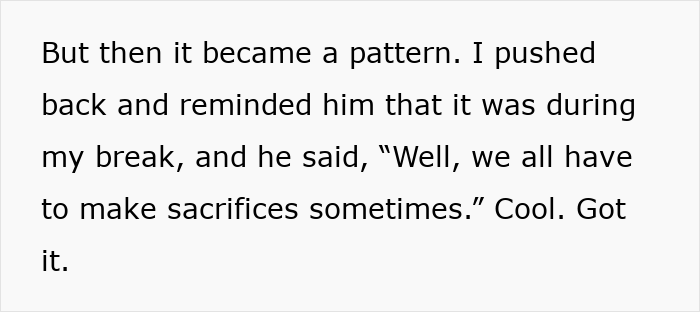


Image credits: No Revisions / unsplash (not the actual photo)
His actions ended favorably for him

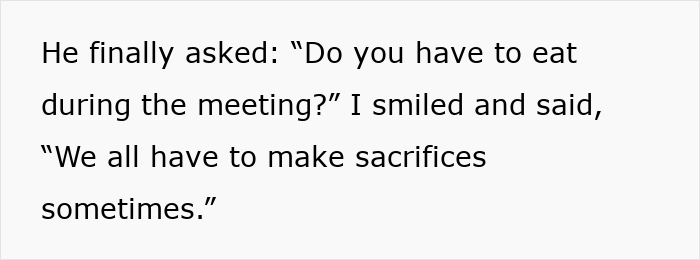

Image credits: dodgethem
Abusive leaders go on power trips to make themselves appear in control
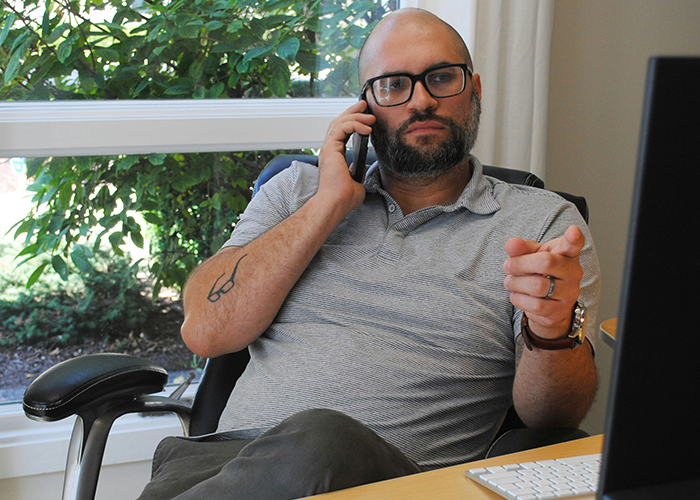
Image credits: Steve DiMatteo / unsplash (not the actual photo)
In a recent interview with Business.com, corporate mental health advocate and Welltrust Partners CEO Dr. Kennette Thigpen Harris, LCSW, defined workplace abuse as the “exploitation of authority” to “exert undue influence, control, or manipulation.”
In this story, the boss flexed his authority by deliberately scheduling meetings during the employee’s lunch hour and dismissing it as the occasional “sacrifices” everyone at work must make.
Many people have endured some form of power-tripping behavior from their supervisors, which raises an important question: What drives people to act in such a manner?
Dr. Harris points to a possible lack of emotional intelligence and self-awareness as these individuals attempt to hide their vulnerabilities and maintain control.
“Unchecked individual power can impede or damage organizational culture by eroding empathy,” Dr. Harris noted.
Another important question would be, “Why does the abuse of power in workplaces keep happening?” Dr. Harris named three possible factors: poor organizational culture, structural hierarchies, and societal norms.
As she explained, traditional workplaces give more importance to authority and results over their employees’ well-being. It therefore results in a working environment where such abuse is tolerated, or worse, normalized.
So, what is the best way to handle an abusive boss? A top tip from author and psychotherapist Bryan E. Robinson would be to use good judgment.
In an article for Forbes, he advises remaining tactful and professional, even during moments of sheer frustration. Robinson also encourages having a dialogue with the boss in question and having an open, empathetic mindset throughout the conversation.
“You can’t fire your boss, but you can take action that will benefit you in the long run,” he wrote.
However, the author didn’t think that his boss was the approachable type, especially with the comment about sacrifices. His petty revenge was a harmless yet effective way of getting his message across.
The author provided more information by answering the reader’s questions
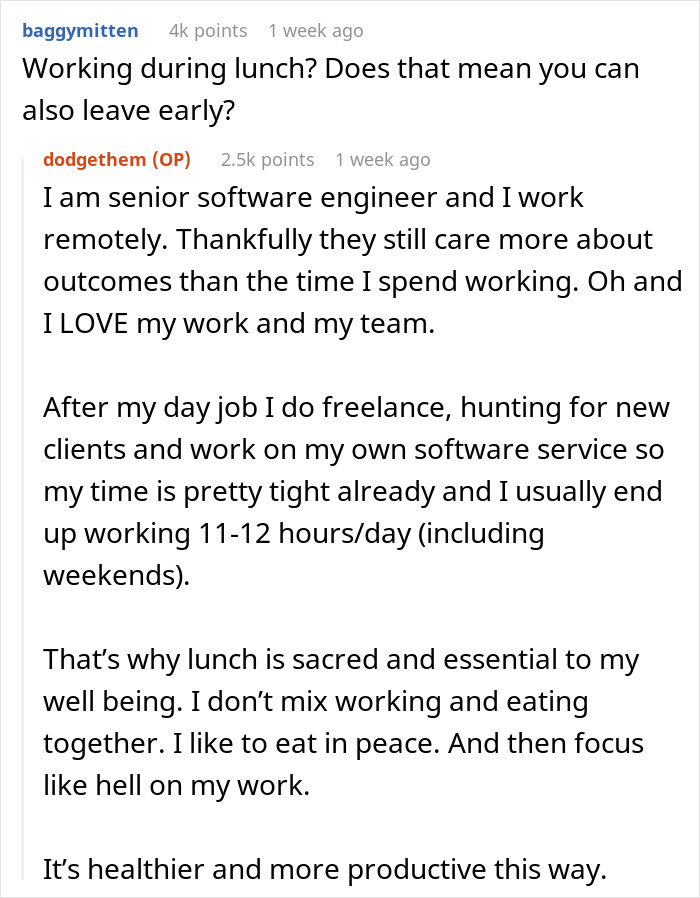

People in the comments shared similar experiences
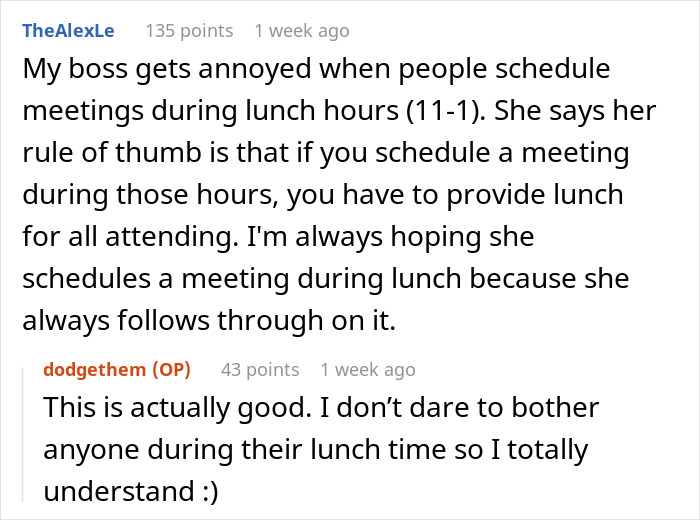
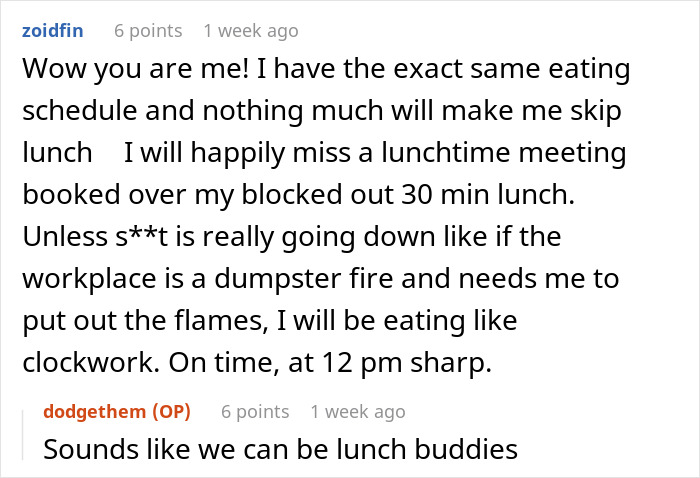
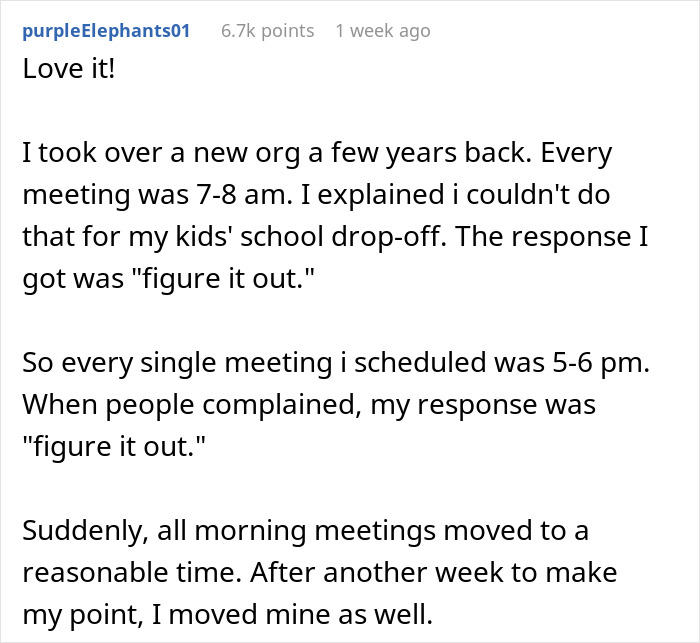
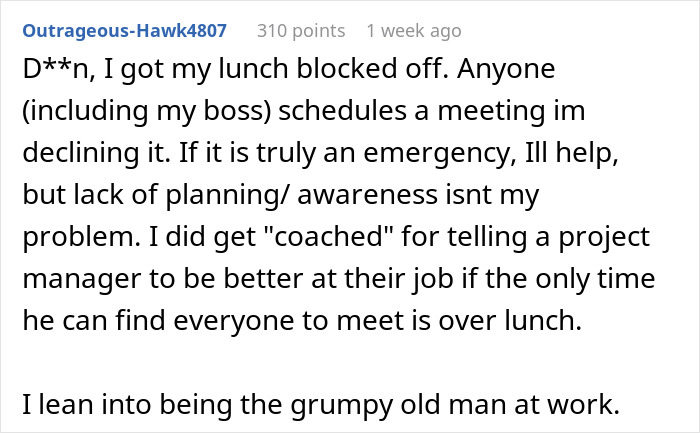
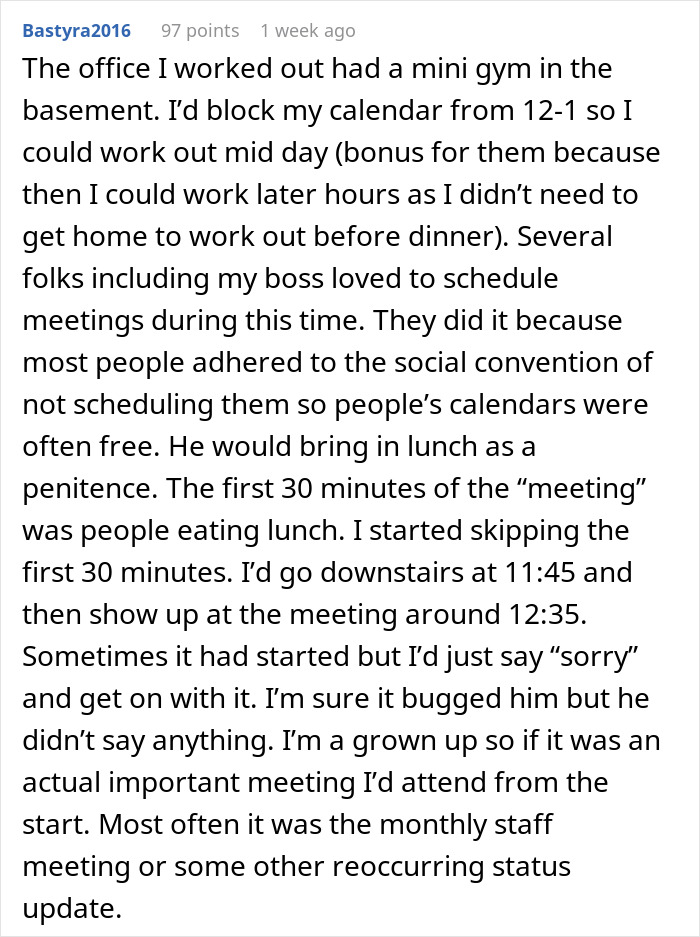
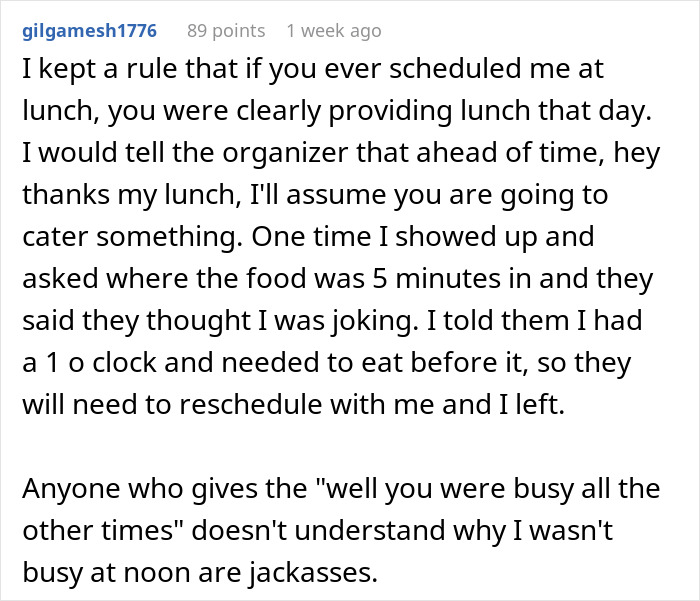

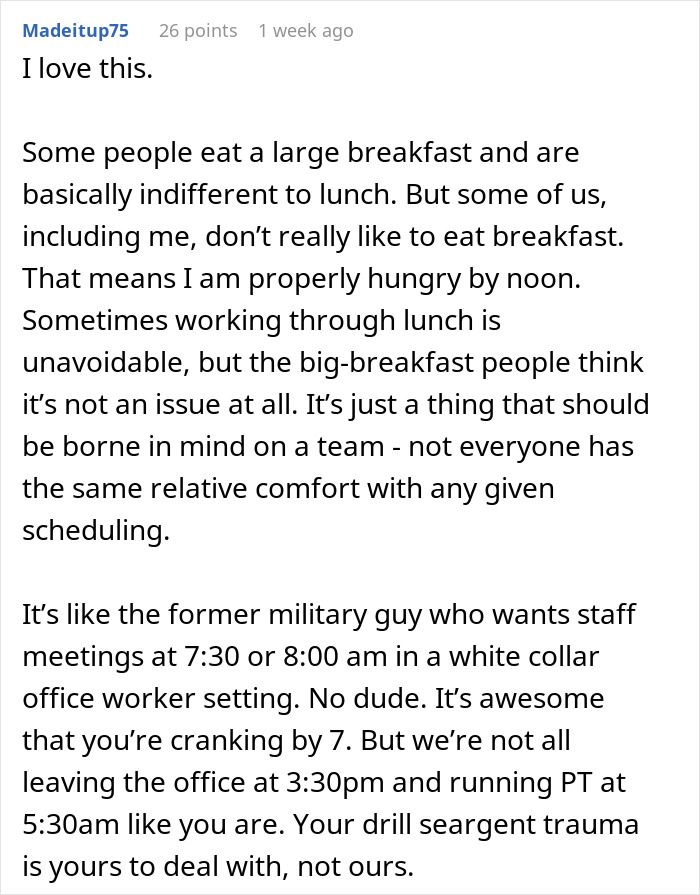
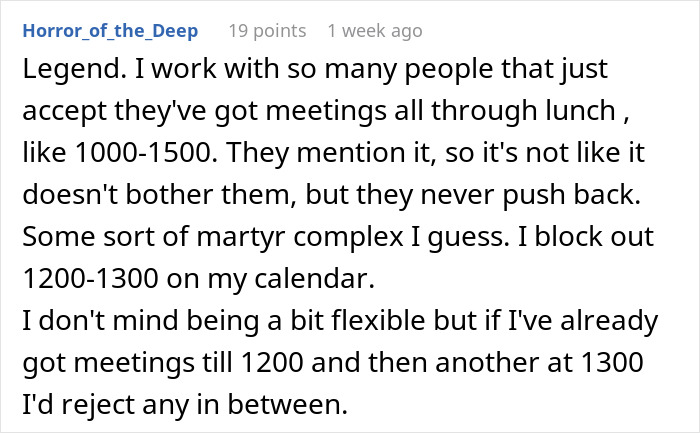
More people showed support for the author


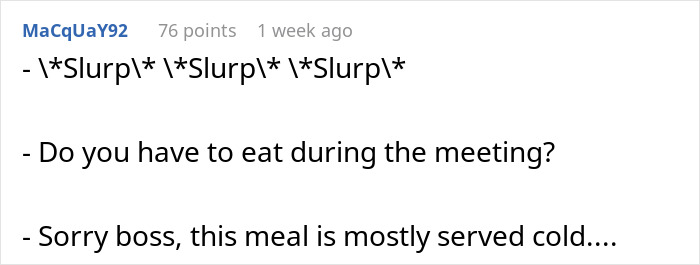




However, some shared their unpopular opinions


